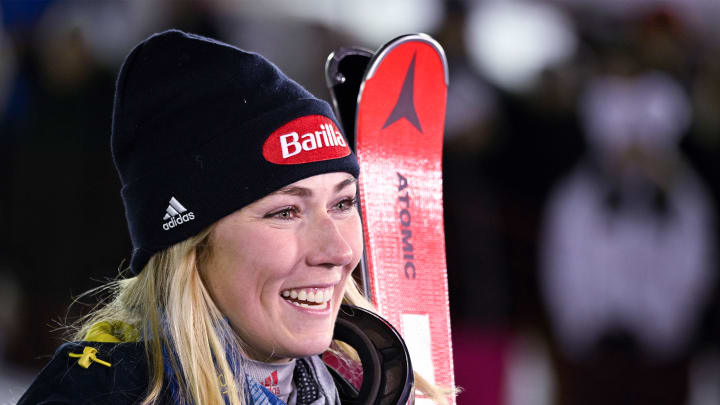Mikaela Shiffrin Writes Emotional Essay on Navigating Father’s Death

Mikaela Shiffrin gave insight into how she navigated the grief following her father’s death, and she may never stop grieving, something she is O.K. with.
“It’s not linear. It’s not a climb up a mountain,” Shiffrin wrote in an essay published by The Players’ Tribune on Thursday. “It’s more like a maze. Some days, I feel O.K. Some days, it still feels as raw as when we walked into the hospital after our 10-hour flight home and saw him on the ventilator.”
Shiffrin’s father suddenly in February 2020 after an accident, and she detailed the call she and her mother received, the emotions she felt during the 10-hour plane ride and the nine hours she laid with him in the hospital as he was on a ventilator. But going through the pain of recounting the memories with him, his influence on her skiing and his death have a purpose.
“It’s extremely hard to relive this pain, but the reason I’m doing it is because maybe it can help someone else. I’m doing it because someone did it for me. A stranger, as a matter of fact,” Shiffrin wrote.
The Olympic gold medalist detailed how people highlight feeling “endless sadness of losing that person, and the ‘celebration’ and happiness of remembering their life.” However, there is anger as well. She wrote, “It’s like you have an injury in your soul. There is no timetable. There is no rehabilitation. Some days you wake up and think, What’s the point?”
A letter from a stranger reassuring her that “It’s O.K. to be mad at your dad for leaving you,” among other comments, helped Shiffrin start processing the emotions.
She tested positive for COVID-19 in late 2021 in the lead-up to the Games, among other ups and downs throughout a season dismantled by the pandemic. Shiffrin entered Beijing ’22 as one of the most highly decorated skiers, winning more world championship medals (11) than any other American skier. However, the star struggled during the Winter Games, taking home no medals from six events.
It prompted people to ask her: “What happened?”
“I could give you the media answer that I always give. I could put on a brave face and tell you some generic thing. But the real truth is … I don’t know.”
Shiffrin went on to win the World Cup, and afterwards, “people would say things to me like, ‘Mikaela, now that you’re in a much better place….’ And I never said it out loud, but I would always think: Am I? We equate winning with being O.K., and failure with being not O.K.
“The real truth is that I’m neither O.K. nor not O.K. It really depends on the day, and it has almost nothing to do with how fast I came down a mountain.”
More Olympics Coverage:
